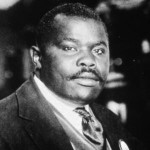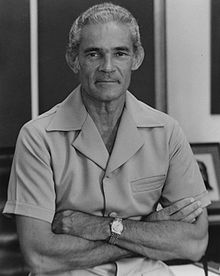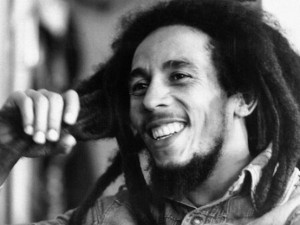3 Ms of Jamaica —Marcus, Michael, and Marley

…A snapshot of their contributions to Jamaica and the World
Marcus Mosiah Garvey, Jr., ONH (17 August 1887 – 10 June 1940), was a Jamaican political leader, publisher, journalist, entrepreneur, and orator who was a staunch proponent of the Black Nationalism and Pan-Africanism movements, to which end he founded the Universal Negro Improvement Association and African Communities League (UNIA-ACL).
He founded the Black Star Line, which promoted the return of the African Diaspora to their ancestral lands.
Garvey is known as a leading political figure because of his determination to fight for the unity of African Americans by creating the Universal Negro Improvement Association, UNIA. An important aspect of his career was his thoughts on communism.
Garvey felt that communism would be more beneficial for Whites by solving their own political and economic problems, but would further limit the success of blacks rising together.
Schools, colleges, highways, and buildings in Africa, Europe, the Caribbean, and the United States have been named in his honor. The UNIA red, black, and green flag has been adopted as the Black Liberation Flag. Since 1980, Garvey’s bust has been housed in the Organization of American States’ Hall of Heroes in Washington, D.C.
Garvey was given major recognition as a national hero during Jamaica’s move towards independence. As such, he has numerous tributes there. The first of which is the Garvey statue and shrine in Kingston’s National Heroes Park.

Michael Norman Manley ON OCC (10 December 1924 – 6 March 1997) was a Jamaican politician who served as the fourth Prime Minister of Jamaica from 1972 to 1980 and from 1989 to 1992. Coming from a prosperous background, Manley was a democratic socialist. According to opinion polls, he is one of Jamaica’s most popular Prime Ministers since independence.
In the election of 1972, Manley defeated the unpopular incumbent Prime Minister, Hugh Shearer, running on the slogans “Better must come”, “Giving power to the people” and leading “a government of truth”.
He instituted a series of socio-economic reforms that produced mixed results. Though he was a Jamaican from an elite family, Manley’s successful trade union background helped him to maintain a close relationship with the country’s poor majority, and he was a dynamic and popular leader.
Manley developed close friendships with several foreign leaders, foremost of who were Julius Nyerere of Tanzania, Olof Palme of Sweden, Pierre Trudeau of Canada and Fidel Castro of Cuba. With Cuba just 145 km (90 mi) north of Jamaica, he strengthened diplomatic relations between the two island nations, much to the dismay of United States policymakers.
Manley wrote seven books, including the award-winning A History of West Indies Cricket, in which he discussed the links between cricket and West Indian nationalism.
Michael Manley died of prostate cancer on 6 March 1997.

Robert Nesta “Bob” Marley, OM (6 February 1945 – 11 May 1981) was a Jamaican reggae singer, song writer, musician, and guitarist who achieved international fame and acclaim. Starting out in 1963 with the group The Wailers, he forged a distinctive songwriting and vocal style that would later resonate with audiences worldwide. The Wailers would go on to release some of the earliest reggae records with producer Lee Scratch Perry.
After the Wailers disbanded in 1974, Marley pursued a solo career that culminated in the release of the album Exodus in 1977, which established his worldwide reputation and produced his status as one of the world’s best-selling artists of all time, with sales of more than 75 million records.
Survival, a defiant and politically charged album, was released in 1979. Tracks such as Zimbabwe, Africa Unite, Wake Up and Live, and Survival reflected Marley’s support for the struggles of Africans. His appearance at the Amandla Festival in Boston in July 1979 showed his strong opposition to South African apartheid, which he already had shown in his song War in 1976.
In early 1980, he was invited to perform at 17 April celebration of Zimbabwe’s Independence Day. Uprising (1980) was Bob Marley’s final studio album, and is one of his most religious.
In July 1977, Marley was found to have a type of malignant melanoma under the nail of a toe.
Source: en.wikipedia.org – Compiled by Karl A. Haughton
Be Sure to Check out The Caribbean Current
Download The Jamaican Blogs™ App for your Android device: HERE
Remember to share this article on Facebook and other Social Media Platforms. To submit your own articles or to advertise with us please send us an EMAIL at: [email protected]


Yes these were some great men.